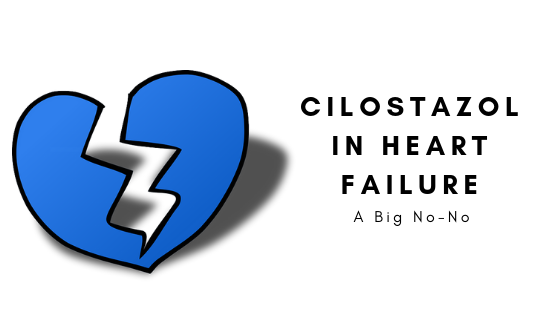Should we use cilostazol in heart failure? A 68 year old male smoker has a past medical history of peripheral vascular disease, cardiovascular disease, myocardial infarction X2, osteoarthritis, CHF and constipation. He has an extensive medication list that includes;
- Acetaminophen as needed
- Ibuprofen as needed
- Atorvastatin(listen to the podcast)
- Aspirin
- Clopidogrel
- Metoprolol
- Lisinopril
- Spironolactone(listen to the podcast)
- Furosemide
- Docusate
- Sennosides
- Digoxin
He is interested in quitting smoking which he understands would benefit his health. He has tried and failed in the past, but is in today to see what other options are available other than nicotine replacement.
Within this discussion, he notes that walking and doing daily activities is getting harder and harder because of his legs. He reports that his legs feel like they cramp up and sting. He says it’s almost as if they are falling asleep. He says the further he tries to walk, the worse it gets. He is diagnosed with intermittent claudication and it is determined to try to initiate cilostazol to help with these symptoms.
Cilostazol can potentially help with blood flow as part of its mechanism. It has antiplatelet activity, and also may have some vasodilatory effects. Mechanistically, it inhibits the phosphodiesterase-3 enzyme. This action results in an increase in cyclic AMP which has the above mentioned effects.
With this patient’s heart failure, phosphodiesterase inhibitors have been shown to increase mortality. There is a boxed warning, and any benefit of using cilostazol in heart failure would likely be outweighed by the warning.
Love the blog? Get a free gift simply for following! Over 5,000 medication loving healthcare professional have taken advantage of this!



0 Comments